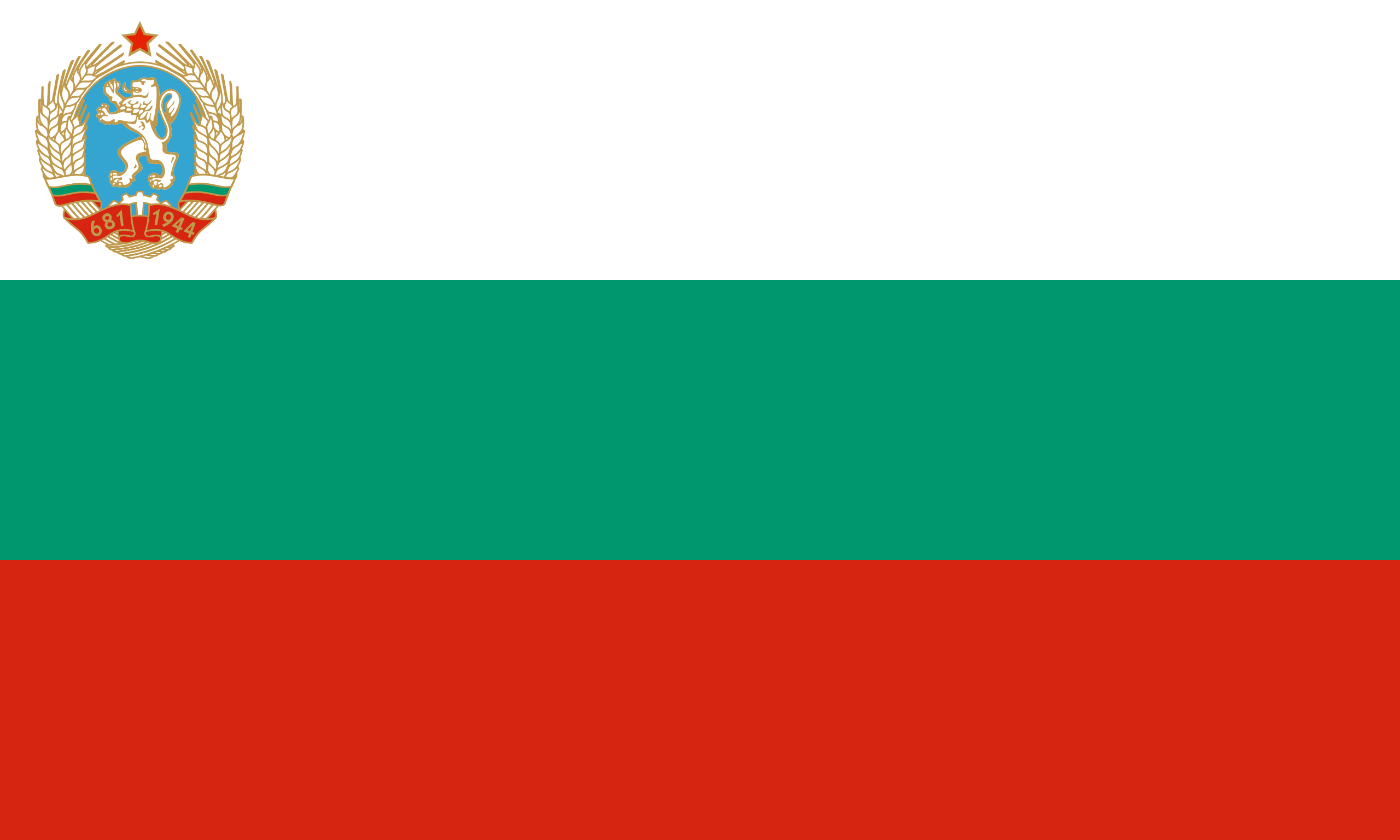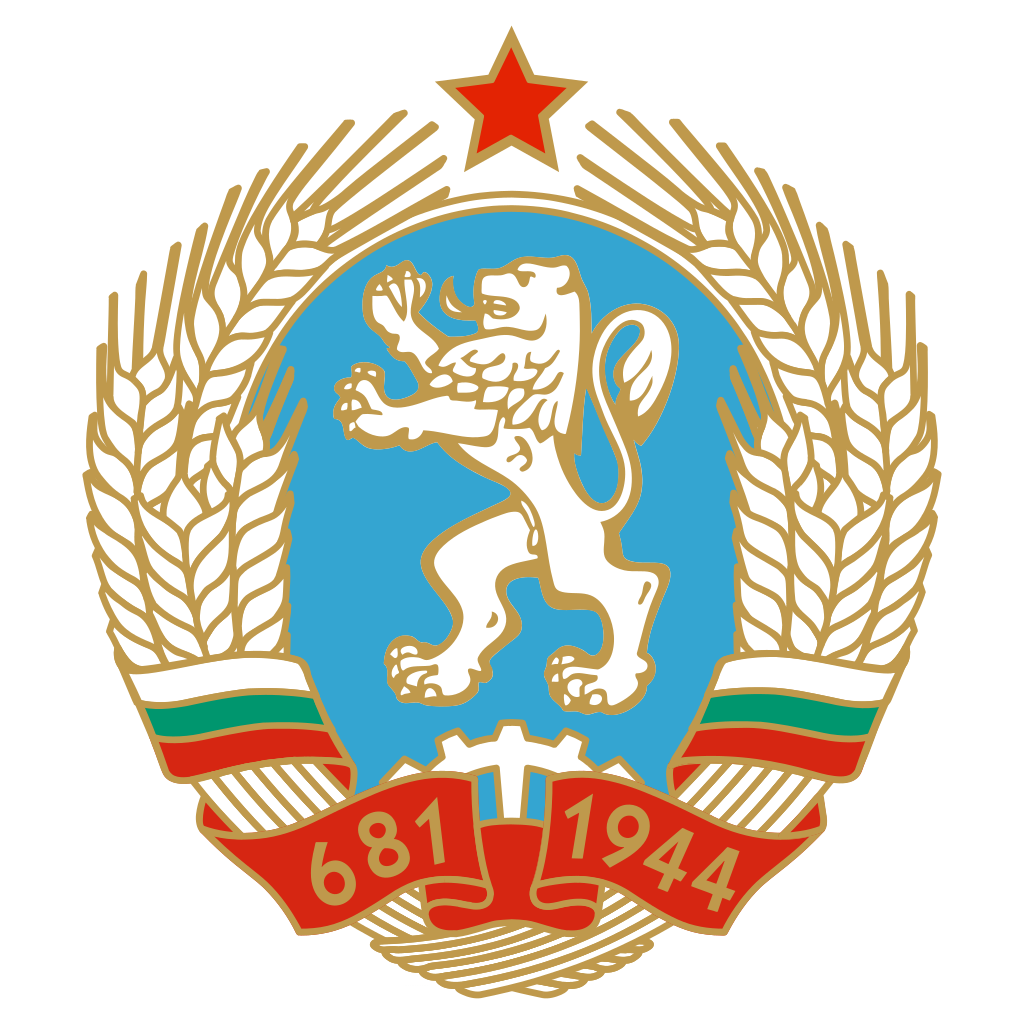People's Republic of Bulgaria (1946–1990): Difference between revisions
No edit summary Tag: Visual edit |
(Retirement ages) Tag: Visual edit |
||
| Line 1: | Line 1: | ||
{{Infobox country|name=People's Republic of Bulgaria|native_name=<span lang="bg" dir="ltr">Народна Република България</span>|image_flag=People's Republic of Bulgaria flag.png|image_coat=Socialist Bulgaria coat of arms (1971–1990).png|flag_caption=Flag (1971–1990)|capital=[[Sofia]]|largest_city=[[Sofia]]|official_languages=Bulgarian|mode_of_production=[[Socialism]]|government_type=[[Socialist state|Marxist-Leninist people's republic]]|area_km2=110,994|population_estimate=8,987,000|population_estimate_year=1989}} | {{Infobox country|name=People's Republic of Bulgaria|native_name=<span lang="bg" dir="ltr">Народна Република България</span>|image_flag=People's Republic of Bulgaria flag.png|image_coat=Socialist Bulgaria coat of arms (1971–1990).png|flag_caption=Flag (1971–1990)|capital=[[Sofia]]|largest_city=[[Sofia]]|official_languages=Bulgarian|mode_of_production=[[Socialism]]|government_type=[[Socialist state|Marxist-Leninist people's republic]]|area_km2=110,994|population_estimate=8,987,000|population_estimate_year=1989}} | ||
The '''People's Republic of Bulgaria''' was a [[socialist state]] in southeastern [[Europe]] that existed from 1946 to 1990. | The '''People's Republic of Bulgaria''' was a [[socialist state]] in southeastern [[Europe]] that existed from 1946 to 1990. Its citizens had [[Universal healthcare|free healthcare]] and a retirement of age of 55 for women and 60 for men.<ref name=":02">{{Citation|author=[[Michael Parenti]]|year=2000|title=To Kill a Nation|chapter=Yugoslavia's Future: Is It Bulgaria?|page=192–193|pdf=https://leftychan.net/edu/src/1614706295182-3.pdf|publisher=Verso}}</ref> | ||
==History== | ==History== | ||
Revision as of 15:25, 13 June 2023
| People's Republic of Bulgaria Народна Република България | |
|---|---|
| Capital and largest city | Sofia |
| Official languages | Bulgarian |
| Dominant mode of production | Socialism |
| Government | Marxist-Leninist people's republic |
| Area | |
• Total | 110,994 km² |
| Population | |
• 1989 estimate | 8,987,000 |
The People's Republic of Bulgaria was a socialist state in southeastern Europe that existed from 1946 to 1990. Its citizens had free healthcare and a retirement of age of 55 for women and 60 for men.[1]
History
Counterrevolution
In 1990, Bulgaria held its first multiparty elections since the Second World War. The Union of Democratic Forces coalition received $2 million from the NED to influence the election. Despite Western interference, the Bulgarian Socialist Party won 47% of the vote compared to 36% for the UDF. Hundreds of observers from Western Europe acknowledged that the election was fair.
On 6 July, President Petar Mladenov resigned due to a week of protests and a hunger strike outside parliament. Interior minister Atanas Smerdijev also resigned and parliament elected UDF leader Zhelyu Zelev as president. Counterrevolutionaries burned down and looted the headquarters of the Socialist Party.
On 23 November, the UDF stormed out of parliament after failing to remove Prime Minister Andrey Lukanov in a no-confidence motion. The UDF narrowly won the next election, but its cabinet and vice president resigned. In July 1993, protesters prevented the president from entering office for a month.[2]
Economy
Agriculture
From fall 1948 to spring 1949, 1,000 agricultural cooperatives were formed in Bulgaria, encompassing 13.3% of households in the country. By March 1949, the country's 1,600 cooperatives took up 5,400 km2 of land.[3]
Living standards
Education
Children between ages 9–13 participated in the Pioneers and youth aged 14–18 participated in the Komsomol.
All universities in Bulgaria were publicly owned under socialism. They were difficult to get into but had free tuition and guaranteed jobs after graduation.[4]
Health care
Bulgaria had one of the best medical systems in Eastern Europe and high-quality medications were available for low prices. Women had three years of partially paid maternity leave.[4]
Public transportation
Socialist Bulgaria had an excellent public transportation system. Bus tickets only cost four cents, 1/18 of what they now cost in Bulgaria.[4]
References
- ↑ Michael Parenti (2000). To Kill a Nation: 'Yugoslavia's Future: Is It Bulgaria?' (pp. 192–193). [PDF] Verso.
- ↑ William Blum (2004). Killing Hope: 'Bulgaria, 1990; Albania, 1991: Teaching communists what democracy is all about'. Common Courage Press. ISBN 9781567512526
- ↑ Organ of the Information Bureau of the Communist and Workers’ Parties (1949-11-18). "Development of Agricultural Co-operatives in Bulgaria" Retrieved 2022-04-17.
- ↑ 4.0 4.1 4.2 F.S. (2013-10-02). "An experiment in living socialism: Bulgaria then and now" Political Affairs. Archived from the original on 2022-06-18. Retrieved 2022-06-27.

